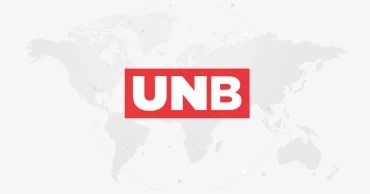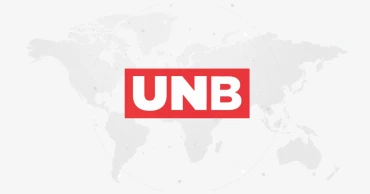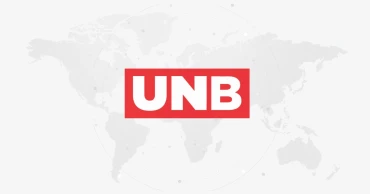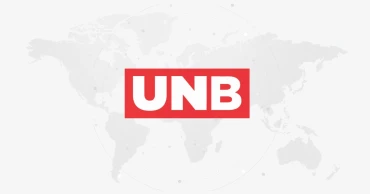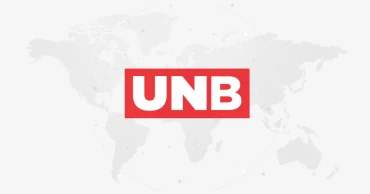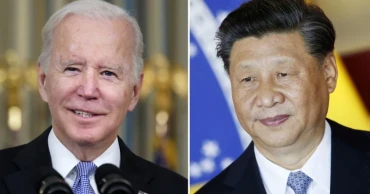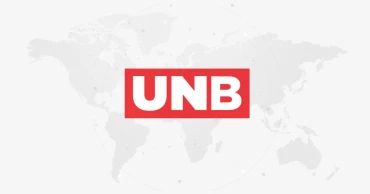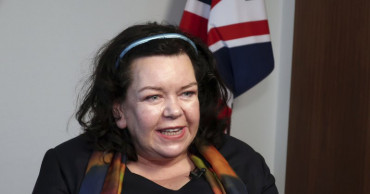ties
US defense secretary discusses upgrading ties with India to counter China
U.S. Defense Secretary Lloyd Austin on Monday discussed upgrading partnership with India, a major arms buyer, as both countries grapple with China's economic rise and increased belligerence, officials said.
Austin met with India's Defense Minister Rajnath Singh, with both sides emphasizing technology partnerships including defense, clean energy and space. India is working to promote its domestic defense industry by acquiring technology and reducing reliance on imports, particularly from Russia, its largest supplier of military hardware despite the ongoing war in Ukraine.
"I'm returning to India to meet with key leaders for discussions about strengthening our Major Defense Partnership. Together, we're advancing a shared vision for a free and open Indo-Pacific," Austin tweeted after his arrival in New Delhi on Sunday.
Also Read: Indian Army Chief arrives in Dhaka on 2-day visit
Austin, who is on his second visit to India, was expected to lay the groundwork for Prime Minister Narendra Modi's visit to Washington on June 22, which has fuelled speculation about a possible announcement of defense contracts.
India is looking to buy 18 armed high-altitude long-endurance unmanned aerial vehicles from General Atomics Aeronautical Systems Inc. for an estimated $1.5 billion to $2 billion, said Rahul Bedi, a defense analyst. The UAVs would likely be deployed along its restive borders with China and Pakistan and in the strategic Indian Ocean region, Bedi said.
Indian media reports said a joint production and manufacture of combat aircraft engines, infantry combat vehicles, howitzers and their precision ordnance were discussed last month in Washington at a meeting of the U.S.-India Defense Policy Group.
Austin arrived in New Delhi from Singapore, where he attended the Shangri-La Dialogue, an annual forum bringing together top defense officials, diplomats and leaders. Austin lobbied for support for Washington's vision of a "free, open, and secure Indo-Pacific within a world of rules and rights" as the best course to counter increasing Chinese assertiveness in the region.
Also Read: ‘Asian Century’ presents an opportunity to South Asia: India
China's Defense Minister Gen. Li Shangfu said at the conference that the U.S. has been "deceiving and exploiting" Asia-Pacific nations to advance its own self-interests to preserve "its dominant position."
Li suggested that Washington has been holding on to alliances that are "remnants of the Cold War" and establishing new pacts, like the AUKUS agreement with Britain and Australia and the Quad grouping with Australia, India and Japan, "to divide the world into ideologically-driven camps and provoke confrontation."
India is trying a balancing act in its ties with Washington and Moscow, and has been reducing its dependence on Russian arms by also buying from the U.S., France, Germany and other countries.
The U.S. defense trade with India has risen from near zero in 2008 to over $20 billion in 2020. Major Indian purchases from the United States included long-range maritime patrol aircraft, C-130 transport aircraft, missiles and drones.
Experts say up to 60% of Indian defense equipment comes from Russia, and New Delhi finds itself in a bind at a time when it is facing a 3-year-old border standoff with China in eastern Ladakh, where tens of thousands of soldiers are stationed within shooting distance. Twenty Indian soldiers and four Chinese troops died in a clash in 2020.
2 years ago
Russian prime minister says pressure from West is strengthening ties with China
Pressure from the West is strengthening Russia's ties with China, Russian Prime Minister Mikhail Mishustin said in a meeting with his Chinese counterpart in Beijing Wednesday.
Mishustin's visit comes as Russia is increasingly turning to China for diplomatic and economic support amid growing isolation over its invasion of Ukraine.
Also Read: G7 urges China to press Russia to end war in Ukraine, respect Taiwan's status, fair trade rules
In opening remarks at his meeting Wednesday with Chinese Premier Li Qiang, Mishustin did not mention the 15-month-old war that China, in deference to Moscow, has refused to criticize, focusing instead on economic cooperation between the neighbors that have partnered in challenging the U.S. lead in global affairs.
Relations between the two countries are "at an unprecedented high level," influenced by the "increased turbulence in the international arena and the pattern of sensational pressure from the collective West," Mishustin said.
Also Read; New sanctions: How effective are they in stopping Russia's invasion of Ukraine?
China says it is a neutral party between Russia and Ukraine and wants to help broker an end to the conflict. But it has blamed the West for provoking Moscow and has maintained strong diplomatic and trade ties with Russia in opposition to sanctions against it.
China's special envoy met with Ukrainian President Volodymyr Zelenskyy and other government officials during talks in Kyiv this month. The visit followed a phone call last month between the Ukrainian leader and his Chinese counterpart Xi Jinping that Zelenskyy described as "long and meaningful" and which marked the first known contact between the two since the Russian invasion began.
Also Read: The cyber gulag: How Russia tracks, censors and controls its citizens
Beijing released a peace plan in February but Ukraine's allies largely dismissed it, insisting that Putin must withdraw his forces. Zelenskyy's own 10-point peace plan includes a tribunal to prosecute war crimes committed by Russia.
While sidestepping the conflict, Mishustin emphasized Russia's role as a provider of oil and gas to China and their bonds formed as initial allies among communist nations.
"The peoples of Russia and China cherish their history, rich culture and traditions. We support the further development of our culture, exchanges and communication," Mishustin said.
2 years ago
US ex-security adviser calls for closer ties with Taiwan
A former U.S. national security adviser called for deeper interaction between his country and Taiwan during a visit Saturday to the self-ruled island, which has seen increasing military threats from China.
John Bolton, a potential Republican presidential candidate in 2024, said at a pro-Taiwan independence event in Taipei that national security teams from both sides must develop contingency plans on how to respond to actions Beijing might take, warning it would be too late once an attack occurs.
“And we have to tell China and Russia what the consequences are if they take actions against Taiwan. Not just in the immediate response, but over the longer term, to basically excommunicate China from the international economic system if it did take military actions against Taiwan or attempt to throw a blockade around it," Bolton said.
Bolton, former President Donald Trump's hawkish national security adviser, started his week-long trip to Taiwan on Wednesday. The visit reflects the importance of the island's democracy as an issue in the U.S. presidential election next year amid heightened tensions between Washington and Beijing.
Taiwan and China split in 1949 following a civil war that ended with the Communist Party in control of the mainland. The island has never been part of the People’s Republic of China, but Beijing says it must unite with the mainland, by force if necessary.
The U.S. remains Taiwan’s closest military and political ally, despite the lack of formal diplomatic ties between them. U.S. law requires Washington to treat all threats to the island as matters of “grave concern,” though it remains ambiguous over whether American forces would be dispatched to help defend the island.
Bolton said the backlog of U.S. military sales to Taiwan is estimated to be $19 billion and it needs to be resolved.
“Part of that is a U.S. problem. Our defense industrial base is not as strong as it used to be. We need to improve that for global reasons, but particularly for Taiwan,” he said.
On Friday, the Taiwanese Defense Ministry said China’s military flew 38 fighter jets and other warplanes near Taiwan. That was the biggest such flight display since the large military exercise in which it simulated sealing off the island after the sensitive April 5 meeting between Taiwan President Tsai Ing-wen and U.S. House Speaker Kevin McCarthy. China opposes any exchanges at the official level between Taiwan and other governments.
Later Friday, China’s People’s Liberation Army also issued a protest over the flight of a United States Navy P-8A Poseidon anti-submarine patrol aircraft through the Taiwan Strait, calling it a provocation that the U.S. “openly hyped up." But the U.S. 7th Fleet said Thursday’s flight was in accordance with international law and “demonstrates the United States’ commitment to a free and open Indo-Pacific.”
Bolton is scheduled to join a banquet on Monday organized by the Formosan Association for Public Affairs, a pro-independence organization headquartered in Washington, D.C. Tsai will also attend the event.
2 years ago
Serbia, Kosovo leaders weigh EU proposals to improve ties
The leaders of Serbia and Kosovo are holding talks on Monday on European Union proposals aimed at ending a long series of political crises and setting the two on the path to better relations and ultimately mutual recognition.
Tensions have simmered between Serbia and its former territory since Kosovo unilaterally broke away in 2008; a move recognized by many Western countries but opposed by Serbia, with the backing of Russia and China.
Recently, those tensions flared over seemingly trivial matters like vehicle license plate formats, or the arrest of an ethnic Serb police officer, triggering renewed concern among Western leaders that a new Balkan conflict might break out just as Russia’s war in Ukraine enters its second year.
At meetings in Brussels, Serbian President Aleksandar Vucic and Kosovo Prime Minister Albin Kurti are expected to discuss ways to put the European proposals into action. Both leaders have already discussed the plan, which hasn't been made public, and EU officials are confident of progress.
A senior EU official said before the talks that “we need to break the vicious circle of crisis.” He said the proposals are “not the end of the road” when it comes to normalizing ties between Belgrade and Pristina, but that given recent tensions, the EU plan is the “maximum achievable at this point.”
The official briefed reporters on the condition that he not be named because of the highly sensitive nature of the meetings. Previous talks between Vucic and Kurti have degenerated into arguments and mutual recrimination, but this time both leaders have already endorsed the proposals “in principle,” he said.
Vucic said Sunday, before the meetings supervised by EU foreign policy chief Josep Borrell, that he’s “ready to work on the concept and implementation of the proposed plan with clearly defined limitations.”
Also Read: Greece plane crash: Cargo aircraft was carrying weapons to Bangladesh : Serbian minister
He didn't specify the “limitations,” but he has repeatedly said that they include the refusal to recognize Kosovo as an independent state as well as agree to it becoming a U.N. member.
The EU has mediated negotiations between Serbia and Kosovo since 2011, but few of the 33 agreements that have been signed were put into action. The EU and the U.S. have pressed for faster progress since Russia launched a full-scale invasion of Ukraine last year.
Earlier this month, hundreds of Serbian nationalists gathered in Belgrade to demand that Vucic reject the EU plan and pull out of the talks.
Shouting “Treason” and carrying banners reading “No surrender,” the right-wing protesters blocked traffic as they gathered near the Serbian presidency building. The protesters are also strongly pro-Russia, and one banner read: “Betrayal of Kosovo is betrayal of Russia!”
In recent months, U.S. and EU envoys have visited Pristina and Belgrade regularly to encourage them to accept the new proposals, and the two leaders met with senior EU representatives on the sidelines of a major security conference in the German city of Munich earlier this month.
3 years ago
Vietnam honours three Bangladeshis for promoting people-to-people ties
Vietnam has honoured three Bangladeshis with different awards for their contributions to promoting people-to-people relations between the Southeast Asian country and Bangladesh, especially introducing the Bangladeshis to the life and career of Ho Chi Minh, a hero of Vietnam's liberation and former president.
Pooja Sengupta, artistic director of Turongomi Dance Theatre was awarded the "Friendship Medal," by the president of Vietnam.
She is the writer, choreographer and artistic director of the artwork "Ho Chi Minh – A journey to explore the light within," a dance performance about Ho Chi Minh's life, staged in Dhaka in September 2019.
Mostafizur Rahman Faisal, professor and registrar of the Heritage University of Bangladesh, and KM Abdul Mozid, senior reporter of Dainik Arthoniteer Kagoj, were awarded the "Certificates of Merit" from the Minister of Foreign Affairs of Vietnam.
Faisal translated the book "How Ho Chi Minh wrote his Testament" into Bangla. Mozid translated the book "Ho Chi Minh Biography" into Bangla.
Read more: Vietnam, Bangladesh share same development vision: Ambassador Viet Chien
The president and the foreign minister of Vietnam authorised the ambassador of Vietnam to Bangladesh Pham Viet Chien to hand out the awards to the awardees on their behalf.
Speaking at a ceremony, the ambassador expressed his warmest thanks to the awardees for their efforts as well as sharing sincere thoughts and nice sentiments towards the Vietnamese nation, especially Ho Chi Minh.
He said the Communist Party, the state and the people of Vietnam always remember the support from Bangladeshis for the struggle for independence and peace, for national construction and development, and highly value the contributions of each Bangladeshi organisation and individual.
The envoy hoped that the awardees would continue to do more excellent work to introduce not only the Vietnamese country and nation, Ho Chi Minh to Bangladeshis, but also introduce Bangladesh and Father of the Nation Bangabandhu Sheikh Mujibur Rahman to the Vietnamese.
Read more: Bangladesh-Vietnam direct flights may begin this year-end
3 years ago
Biden-Xi meeting: US trying to understand where China really stands
There won’t be concessions from the U.S. side. No real deliverables, which is government-speak for specific achievements. Don’t expect a cheery joint statement, either.
During President Joe Biden’s highly anticipated meeting with Chinese President Xi Jinping on Monday, the leaders will be circling each other to game out how to manage a relationship that the U.S. has determined poses the biggest economic and military threat.
At the same time, U.S. officials have repeatedly stressed that they see the two countries’ interactions as one of competition — and that they want to avoid conflict.
Here’s a look at what each side is hoping to achieve out of the leaders' first in-person encounter as presidents, to be held on the island of Bali in Indonesia:
FOR THE UNITED STATES
Essentially, Biden and other U.S. officials are trying to understand where Xi really stands.
In a news conference shortly before leaving Washington, Biden said he wanted to “lay out … what each of our red lines are, understand what he believes to be in the critical national interests of China, what I know to be the critical interests of the United States.”
Read more: Biden to meet China's Xi on Monday for Taiwan, Russia talks
That mission has become all the more imperative since the conclusion of the Community Party congress in Beijing, during which Xi secured a norm-breaking third term as leader, empowering him even further.
It’s a goal that will be much more readily achieved in person, White House officials say, despite Biden and Xi’s five video or phone calls during the U.S. president’s term.
Biden told reporters on Sunday that he's “always had straightforward discussions” with Xi, and that has prevented either of them from “miscalculations” of their intentions.
“I know him well, he knows me,” Biden said. “We've just got to figure out where the red lines are and what are the most important things to each of us, going into the next two years.”
The U.S. president will want to send a message to Xi on White House concerns about China’s economic practices. Taiwan is sure to come up, and Biden will want to emphasize to Xi that the U.S. will stand ready to defend the self-governing island should it come under attack by China. Biden also will seek to make clear his concerns about Beijing’s human rights practices, as he has in their previous interactions.
Read more: Xi, Biden exchanging views on China-U.S. ties, issues of common concern
Biden will also use the meeting to press for a more aggressive posture from Xi on Russia’s invasion of Ukraine. The Chinese leader has largely refrained from public criticism of Vladimir Putin’s actions while declining to actively aid Moscow by supplying arms.
“We believe that, of course, every country in the world should do more to prevail upon Russia, especially those who have relationships with Russia, to end this war and leave Ukraine,” said U.S. national security adviser Jake Sullivan.
Finally, U.S. officials say they’re eager to see where the two superpowers could actually collaborate. Though there are numerous areas in which Biden and Xi won’t see eye to eye, the White House has listed several issues where they conceivably could, including health, counternarcotics and climate change.
FOR CHINA
Xi has yet to give a wish list for talks with Biden, but Beijing wants U.S. action on trade and Taiwan.
Perhaps most importantly, the Group of 20 gathering in Bali and the meeting with Biden give China's most powerful leader in decades a stage to promote his country's image as a global player and himself as a history-making figure who is restoring its rightful role as an economic and political force.
China pursues “increasingly assertive foreign and security policies aimed at changing the international status quo,” Kevin Rudd, a former Australian prime minister who is president of the Asia Society, wrote in Foreign Affairs. That has strained relations with Washington, Europe and China's Asian neighbors, but Xi is unfazed and looks set to be more ambitious abroad.
The meeting is “an important event of China’s head-of-state diplomacy toward the Asia Pacific,” said a foreign ministry spokesman, Zhao Lijian. He said Xi will “deliver an important speech” on economic growth.
Read more: Biden, Xi talk more than 2 hours at time of US-China tension
Zhao called on the Biden administration to “stop politicizing” trade and embrace Beijing’s claim to sovereignty over Taiwan, the self-ruled island democracy that split with the mainland in 1949 and never has been part of the People's Republic of China.
Beijing wants Washington to lift tariffs imposed by former President Donald Trump in 2019 and to pull back on increasing restrictions on Chinese access to processor chips and other U.S. technology. Biden has left most of those in place and added curbs on access to technology that American officials say can be used in weapons development.
“The United States needs to stop politicizing, weaponizing and ideologizing trade issues,” Zhao said.
Xi’s government has stepped up efforts to intimidate the elected government of Taiwanese President Tsai Ing-wen by flying fighter planes near the island and firing missiles into the sea.
Beijing broke off talks with Washington on security, climate cooperation and other issues after U.S. House Speaker Nancy Pelosi visited Taiwan in August in a show of support for its government.
“The United States needs to stop obscuring, hollowing out and distorting the ‘one-China principle,’” said Zhao, referring to Beijing’s stance that Taiwan is obligated to join the mainland under Communist Party leadership.
Another goal for Xi: Don’t get COVID-19.
The G-20 will be only Xi's second foreign trip in 2 1/2 years while his government enforces a severe “Zero COVID” strategy that shut down cities and kept most visitors out of China.
Xi broke that moratorium by attending a September summit with Putin and Central Asian leaders. But he skipped a dinner and photo session where Putin and others wore no masks.
3 years ago
50 years of Bangladesh-Thailand ties: Thai Embassy donate food, uniforms to Chattogram orphanage
The Thai Embassy in Dhaka has donated food and student uniforms to an orphanage run under the patronage of Binajuri Smashan Vihara in Raozan of Chattogram to celebrate the 50 years of diplomatic ties between Bangladesh and Thailand.
Thai Ambassador to Bangladesh Makawadee Sumitmor and diplomatic officers from the Thai Embassy donated food and student uniforms to Dhammakatik Orphanage Thursday.
Read: 50 Years of Diplomatic Ties: Thai Embassy to host photography, video contests
The event was part of the Royal Thai Volunteer Project. The project was initiated by King Maha Vajiralongkorn Phra Vajiraklaochaoyuhua of Thailand as a tribute to King Bhumibol Adulyadej and Queen Sirikit for their contributions and efforts to improve the livelihood of the people.
Sangharaja of Bangladesh and Buddhist monks at Binajuri Smashan Vihara welcomed the Thai delegation.
3 years ago
New UK envoy to US wants expanded ties and talks with Trump
Britain's new ambassador to the United States said Friday she looks forward to expanding the traditional security and economic partnership between the two nations to new areas like artificial intelligence and to having talks with President Donald Trump, who has always been "gracious and friendly" to her.
6 years ago
